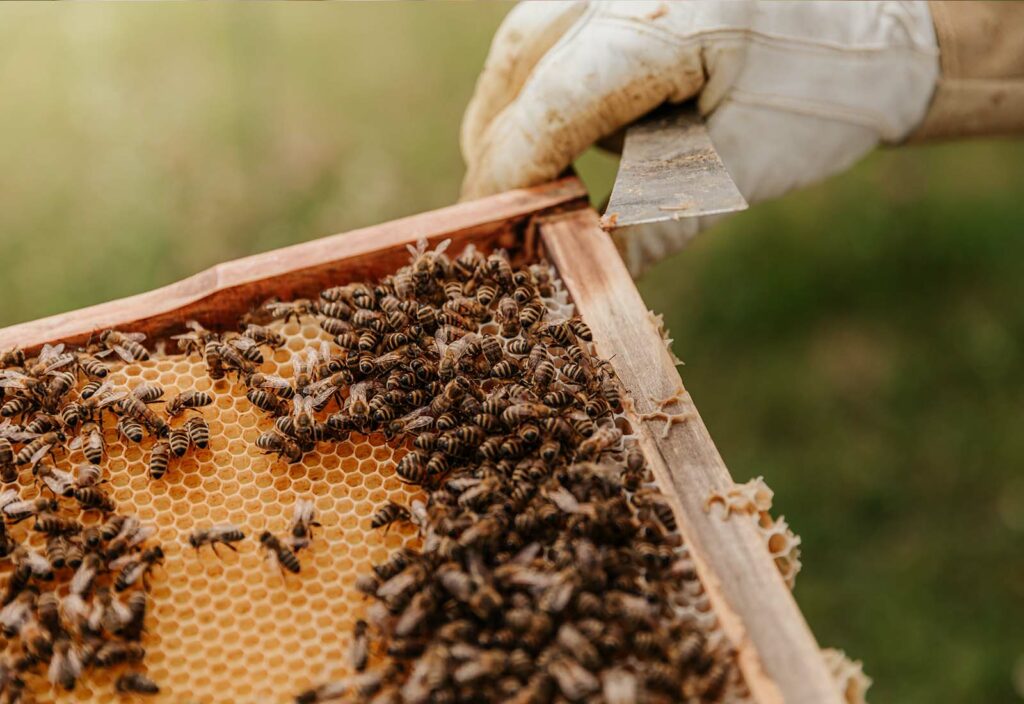
THE PUNCH RESOURCES
Beekeeping: Nurturing Biodiversity Amid Challenges
Bali, Indonesia – November 8, 2023
Beekeeping, also known as apiculture, is the practice of maintaining and managing bee colonies, typically of the honeybee species, for various purposes, primarily the production of honey and other bee-related products. This age-old tradition extends beyond mere honey cultivation; it encompasses fostering pollination, supporting biodiversity, and contributing to the delicate balance of ecosystems. Through the careful tending of hives, beekeepers play a vital role in the interconnected web of nature, promoting not only the sweet rewards of honey but also the health and sustainability of our environment.
This eco-friendly alternative to traditional diesel fuel has gained recognition for its numerous environmental advantages.
How does beekeeping contribute significantly to biodiversity in various ways?
Pollination
Beekeeping supports biodiversity by aiding in the pollination of plants, which is crucial for the reproduction of many flowering plants, including wildflowers, fruits, vegetables, and nuts. The managed bee colonies’ foraging activities contribute to the diversity and health of local plant ecosystems.
Conservation Efforts
Some beekeepers actively engage in conservation efforts to protect and preserve wild bee populations. These efforts can involve creating suitable habitats for native bees and adopting sustainable beekeeping practices that minimize negative impacts on local ecosystems.
Wild Bee Health
Monitoring the health of managed bee colonies can provide insights into bee diseases and pests that may affect wild bee populations. Understanding these threats can help in developing strategies to protect and support native bee species.

Beekeepers, local communities, and policymakers must work together to support the vital role of beekeeping in Bali's ecosystems and agriculture while protecting the health of bee populations in the face of these challenges.
How is beekeeping practiced and influenced in Bali?
Beekeepers in Bali encounter various challenges that impact their practices and the sustainability of beekeeping on the island. One of the significant challenges is climate change, which can affect the behavior and health of bees. Rising temperatures and unpredictable weather patterns can disrupt the bees’ natural rhythms and foraging habits.
Land use changes in Bali also pose challenges for beekeepers. The expansion of urban areas and agricultural activities can lead to habitat loss for bees and reduce the availability of diverse forage sources. Bees rely on a wide range of flowering plants for nectar and pollen, and when these resources are limited, it can affect their nutrition and overall well-being.
Disease management is another crucial challenge for beekeepers in Bali. Bees are susceptible to various diseases and pests, and controlling these issues while minimizing the use of synthetic chemicals is a delicate balancing act. Beekeepers must stay vigilant in monitoring their hives and implementing integrated pest management strategies to keep their colonies healthy.
Addressing these challenges is essential to ensure the sustainability of beekeeping in Bali. It requires a combination of proactive measures, including habitat conservation, climate-resilient practices, and responsible hive management. Beekeepers, local communities, and policymakers must work together to support the vital role of beekeeping in Bali’s ecosystems and agriculture while protecting the health of bee populations in the face of these challenges.
Sustainable beekeeping practices include carefully choosing hive locations, planting native flowering plants, and employing Integrated Pest Management to control diseases and pests without synthetic chemicals. Integrated Pest Management (IPM) is a comprehensive strategy used in sustainable agriculture to reduce pesticide use while maintaining effective pest control. This approach takes into account the entire ecosystem, encompassing the relationships among crops, pests, natural predators, and the surrounding environment. Regular hive inspections, minimizing synthetic chemicals, maintaining hive hygiene, and responsible swarm management ensure the health of honeybee colonies. Supporting native pollinators through habitat creation, gentle bee handling to reduce stress, and providing clean water sources near hives are key practices. Responsible harvesting leaves enough resources for the colony. Educating beekeepers and engaging the community, as well as complying with regulations and monitoring bee populations, are vital for sustainable beekeeping and biodiversity conservation.

